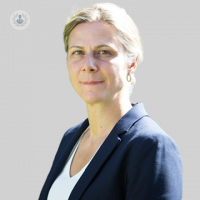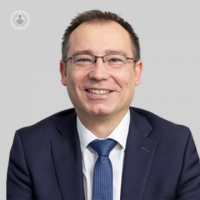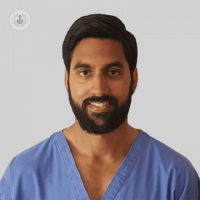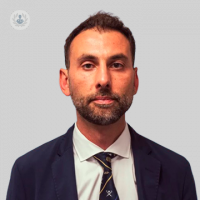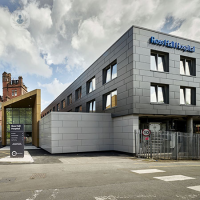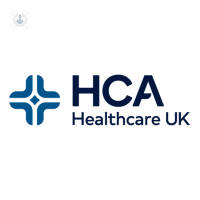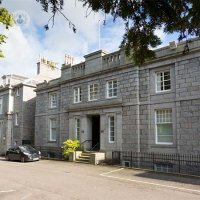What is skull base surgery?
Skull base surgery is a highly specialised branch of surgery that uses minimally invasive techniques to diagnose and treat conditions of the skull base, the top of the spine, and the underside of the brain.
Why is it done?
Skull base surgery is generally used to investigate or remove growths (both cancerous and benign) or to repair congenital malformations located around the base of the skull, including those at the top of the spine and around the bottom of the brain.
Conditions that can be treated with skull base surgery include:
- Pituitary tumours
- Meningiomas
- Chordomas
- Trigeminal neuralgia
- Vestibulocochlear nerve disorders
- Craniopharyngiomas
- Hemifacial spasms
- Craniostenosis
- Cerebro-spinal fluid fistulas
- Cerebral aneurysms
- Arteriovenous malformations (AVMs)
What does it involve?
Skull base surgery is minimally invasive – the surgeon does not have to create an opening in the skull (craniotomy). Instead, special surgical tools are inserted through the natural openings in the skull – the mouth, nose, and above the eyes. This gives skull base surgery several advantages:
- Lower risk of infection
- Lower risk of damage to the nerves and structures of the head
- Lower risk of disfigurement
- Faster recovery
Skull base surgery is a complex procedure, which requires a multi-disciplinary approach; a team of surgeons and doctors from different specialties will be involved in planning and carrying out the operation. Depending on the case, the team might be formed by an otolaryngologist, a neurosurgeon, and a radiation oncologist, with the possible additions of maxillofacial surgeons and plastic and reconstructive surgeons. Paediatric specialists also become involved if the patient is a child.
Alternatives to this treatment
Prior to the development of skull base surgery it was necessary to remove relatively large portions of the skull and/or facial musculature in order to gain entry into these areas.
Chirurgia della base cranica
What is skull base surgery?
Skull base surgery is a highly specialised branch of surgery that uses minimally invasive techniques to diagnose and treat conditions of the skull base, the top of the spine, and the underside of the brain.
Why is it done?
Skull base surgery is generally used to investigate or remove growths (both cancerous and benign) or to repair congenital malformations located around the base of the skull, including those at the top of the spine and around the bottom of the brain.
Conditions that can be treated with skull base surgery include:
- Pituitary tumours
- Meningiomas
- Chordomas
- Trigeminal neuralgia
- Vestibulocochlear nerve disorders
- Craniopharyngiomas
- Hemifacial spasms
- Craniostenosis
- Cerebro-spinal fluid fistulas
- Cerebral aneurysms
- Arteriovenous malformations (AVMs)
What does it involve?
Skull base surgery is minimally invasive – the surgeon does not have to create an opening in the skull (craniotomy). Instead, special surgical tools are inserted through the natural openings in the skull – the mouth, nose, and above the eyes. This gives skull base surgery several advantages:
- Lower risk of infection
- Lower risk of damage to the nerves and structures of the head
- Lower risk of disfigurement
- Faster recovery
Skull base surgery is a complex procedure, which requires a multi-disciplinary approach; a team of surgeons and doctors from different specialties will be involved in planning and carrying out the operation. Depending on the case, the team might be formed by an otolaryngologist, a neurosurgeon, and a radiation oncologist, with the possible additions of maxillofacial surgeons and plastic and reconstructive surgeons. Paediatric specialists also become involved if the patient is a child.
Alternatives to this treatment
Prior to the development of skull base surgery it was necessary to remove relatively large portions of the skull and/or facial musculature in order to gain entry into these areas.
Medici esperti in Chirurgia della base cranica
-
Miss Eleni Maratos
NeurochirurgiaEsperto in:
- Chirurgia della base cranica
- Tumori pituitari
- Algia facciale
- Dolore cervicale
- Dolore alla spalla
- Chirurgia spinale
-
Mr Samih Hassan
NeurochirurgiaEsperto in:
- Tumori pituitari
- Chirurgia spinale
- Discopatia (protrusione discale)
- Chirurgia della base cranica
- Tumori cerebrali
- Malformazione di Chiari
-
Professor Dimitrios Paraskevopoulos
NeurochirurgiaEsperto in:
- Tumori cerebrali
- Chirurgia della base cranica
- Neuroma acustico
- Meningioma
- Discopatia (protrusione discale)
- Coltello Gamma
-
Dr Karan Jolly
OtorinolaringoiatriaEsperto in:
- Rinoplastica
- Collo
- Tumori del cranio
- Chirurgia della base cranica
- Chirurgia endoscopica naso sinusale
- Chirurgia endoscopica della base del cranio
-
Mr Anastasios Giamouriadis
NeurochirurgiaEsperto in:
- Tumori cerebrali
- Dolore alla spalla
- Dolore cervicale
- Chirurgia ad accesso minimo (chirurgia del buco della serratura)
- Chirurgia della colonna mini invasiva
- Chirurgia della base cranica
- Visualizzare tutti

Ross Hall Hospital - part of Circle Health Group
Ross Hall Hospital - part of Circle Health Group
221 Crookston Road, Glasgow G52 3NQ
No existe teléfono en el centro.
Se utilizzi questo numero di Top Doctors autorizzi al trattamento dei dati a fini statistici e commerciali. Per maggiori informazioni, leggi la nostra l’informativa sulla privacy
Top Doctors

The Harborne Hospital - part of HCA Healthcare
The Harborne Hospital - part of HCA Healthcare
Mindelsohn Way, B15 2FQ
No existe teléfono en el centro.
Se utilizzi questo numero di Top Doctors autorizzi al trattamento dei dati a fini statistici e commerciali. Per maggiori informazioni, leggi la nostra l’informativa sulla privacy
Top Doctors

Albyn Hospital - part of Circle Health Group
Albyn Hospital - part of Circle Health Group
21 Albyn Pl, Aberdeen
No existe teléfono en el centro.
Se utilizzi questo numero di Top Doctors autorizzi al trattamento dei dati a fini statistici e commerciali. Per maggiori informazioni, leggi la nostra l’informativa sulla privacy
Top Doctors
-
Ross Hall Hospital - part of Circle Health Group
221 Crookston Road, Glasgow G52 3NQ, GlasgowEsperto in:
- Tumori
- Cardiologia
- Chirurgia del colon-retto
- Dermatologia
- Mal di schiena
- Endocrinologia
-
The Harborne Hospital - part of HCA Healthcare
Mindelsohn Way, B15 2FQ, BirminghamEsperto in:
- Apparato digestivo
- Tumori
- Chirurgia ortopedica
- Chirurgia Toracica
- Diagnostica per immagini
- Ginecologia e Ostetricia
-
Albyn Hospital - part of Circle Health Group
21 Albyn Pl, Aberdeen, AberdeenEsperto in:
- Chirurgia ortopedica
- Gastroenterologia
- Ginecologia e Ostetricia
- Oftalmologia
- Patologia mammaria
- Visualizzare tutti
